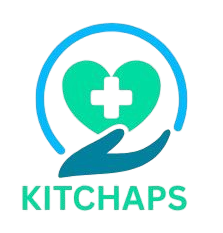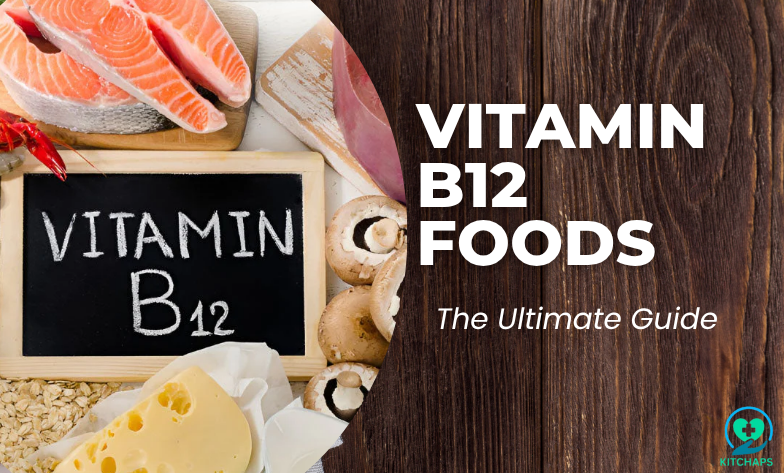Vitamin B12 is also known as Cobalamin. It is a water-soluble vitamin important for the formation of RBC (Red Blood Cell), neuro functions, as well as DNA synthesis. It plays a crucial role in managing brain health, levels of energy, and the nervous system. The human body can store B12 for many years. It is quite common, particularly among vegetarians, vegans, and older adults. And without including B12 in your diet, you might experience fatigue, memory loss, lack of concentration, and chronic nerve damage.
This blog will guide you through non-vegetarian sources, vegetarian sources, vegan sources, fruits and vegetables you should take, and foods to avoid for vitamin B12.
Meat Sources for Vitamin B12 Foods
The meat-based foods remain the dependable and natural sources of vitamin B12. Here are the meat sources:
Liver and Kidney: It includes particularly the lamb and beef. The 100g beef and liver give B12.
Shellfish: It includes clams, oysters, and mussels. Clams have high levels. One serving of 3 ounces gives enough B12.
Fish: Fatty fishes such as salmon, sardines, tuna and trout gives protein and omega 3s. Salmon and trout both are featured in guide for vitamin B12 rich foods.
Red meat and Poultry: Red meat like beef and lamb both are rich in vitamin B12 and they are the best source. Poultry such as chicken and turkey they are considerable sources for omnivores.
| Food Source | Serving Size | Vitamin B12 (mcg per serving) |
| Clams | 3 ounces | 84.1 |
| Oysters | 3 ounces | 24.5 |
| Mussels | 3 ounces | 20.4 |
| Beef liver (cooked) | 3 ounces | 70.7 |
| Lamb liver | 3.5 ounces (100g) | ~85.4 |
| Kidneys (lamb, beef) | 3.5 ounces (100g) | ~80–90 |
| Crab | 3 ounces | 7.6 |
| Sardines | 3 ounces | 7.6 |
| Trout | 3 ounces | 5.4 |
| Salmon | 3 ounces | 3.8 |
| Beef (muscle meat) | 3 ounces | 1.6–2.4 |
| Ham | 3 ounces | ~0.6–1.0 |
| Chicken | 3 ounces | 0.3–0.4 |
| Turkey | 3 ounces | 0.3 |
Vegetarian Vitamin B12 Foods
Vegetarians who eat dairy and eggs, these are the dependable choices:
Milk and Dairy Products: The Products like cow milk, yogurt, and cheese all have B12 and are rich foods.
Eggs: In eggs, especially the yolk. The absorption of B12 is low compared to vitamin B12, but for vegetarians, egg is the dependable solution.
| Food Item | Serving Size | Vitamin B12 Content (mcg) |
| Milk (cow, 2% fat) | 1 cup (240 ml) | 1.3 |
| Yogurt (low-fat, plain) | 170 g (6 oz) | 1 |
| Cheese (cheddar, Swiss) | 28 g (1 oz) cheddar/50 g Swiss | 0.5–1.5 |
| Paneer (cottage cheese, Indian style) | 100 g | 0.8 |
| Eggs (whole, cooked) | 1 large | 0.5 |
| Fortified cereals (B12 added) | 1 serving | 0.6–6.0+ |
| Fortified non-dairy milk (soya/almond) | 1 cup (240 ml) | 1.1–2.1 |
| Fortified nutritional yeast | 5–10 grams | Varies (up to 24) |
| Nori (dried purple laver) | 4 grams | ~3.1 |
| Shiitake mushrooms (dried, rare source) | 100 grams (dried) | 1.3–12.7 |
Vegan Vitamin B12 Foods
Vegans who avoid animal products, the prime sources are fortified foods and supplements. They include:
Fortified Cereals: Many cereals are fortified with vitamin B12 in the U.S., which makes them rich in B12.
Plant Milk Fortified: Seek out almond and soy milk because they are fortified with vitamin B12.
Nutritional Yeast Fortified: Not all yeast has B12, except those that are labeled as fortified.
| Vegan Vitamin B12 Food | Serving Size | Vitamin B12 Content (mcg) |
| Fortified Nutritional Yeast | 1 tablespoon (15 g) | 2.4 – 24 |
| Fortified Plant Milks | 1 cup (240 ml) | 0.5 – 2.1 |
| Fortified Breakfast Cereals | 1 serving (varies, ~30 g) | 0.6 – 6.0+ |
| Yeast Spreads (e.g., Marmite, Vegemite) | 5-8 g (1 tsp) | 0.5 – 1.9 |
| Shiitake Mushrooms (dried) | 50 g dried | ~2.4 |
| Tempeh | ½ cup (85 g) | ~0.1 |
| Fortified Vegan Meats & Cheeses | 1 serving (varies) | 1.0 – 3.1 |
| Chlorella (algae, supplement form) | Varies | Varies |
Vitamin B12 Fruits and Vegetables
There is a misconception that some fruits and vegetables contain vitamin B12. But there are no fruits and vegetables that contains active vitamin B12. Some sea vegetables like algae might contain small amount of B12 but it is inconsistent. Those who are seeking for vitamin B12 vegetables and fruits know that your requirement cannot be fulfill through conventional plant foods. All the prime health organizations suggest fortified foods for vegans and for vegetarian people.
B12 deficiency: Foods to Avoid
Here is the list of food to avoid during vitamin B12 deficiency as some food and habits interacts with vitamin B12 absorption. They are:
| Foods/Factors to Avoid or Limit | Reason for Avoidance | Notes |
| High-fiber foods (especially soluble fiber) | Fiber can bind vitamin B12 and reduce absorption in the small intestine | Important to moderate fiber intake around supplement timing |
| Coffee and Tea | Contain tannins which inhibit B vitamin absorption, including B12 | Avoid consuming near B12 supplements for better uptake |
| High-calcium foods (milk, dairy, fortified plant milks) | Calcium may compete with B12 for absorption | Do not consume high-calcium foods immediately with B12 supplements |
| Antacids and acid-reducing medications (PPIs) | Reduce stomach acid needed to release B12 from food proteins | Chronic use may cause or worsen deficiency |
| Alcohol (chronic heavy use) | Damages stomach lining and reduces intrinsic factor production | Avoid or limit to protect B12 absorption |
| Highly processed foods | Usually lack natural B12 or nutrients needed for absorption | Relying on processed foods can contribute to deficiency |
| Spicy foods (hot peppers) | May chronically irritate stomach lining, reducing intrinsic factor | Not a direct cause but potential long-term risk |
| Certain medications | Antibiotics, colchicine, anticonvulsants can interfere with B12 | Consult doctor about medication effects |
| Excessive protein intake | Very high animal protein may impact B12 absorption balance | Balanced intake advised |
| Plant foods lacking B12 (spirulina, non-fortified seaweed, barley grass) | Contain inactive B12 analogues that do not meet needs | These do NOT prevent deficiency; do not rely on them |
Conclusion
Vitamin B12 is an important nutrient developed from animal food sources, for vegetarians dairy and eggs and for vegans fortified foods. If you do not eat animal products then replace it from fortified foods and plant based products and make vitamin B12 rich food in your diet a priority.
Disclaimer: This blog is only for knowledge purposes, and it is not expert medical advice. Diets change according to the people, so always consult a dietitian for making changes in your diet, particularly if you have other health conditions.
Also read more about:
Neurobion Forte: Composition, Benefits, Side Effects, and Use

